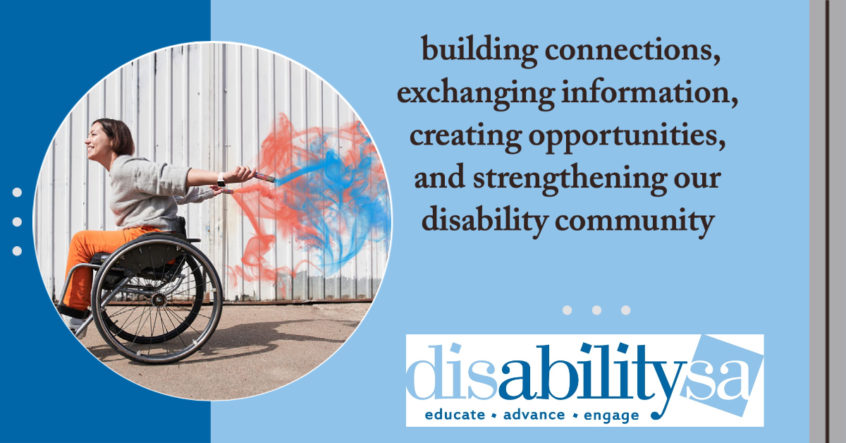Melanie Cawthon was working with people with intellectual disabilities when she discovered her calling.
She saw that while many organizations exist to help people with specific disabilities, a person or their caregiver dealing with multiple disabilities would need to find three, four or more different agencies to get assistance. The city needed a unified community of service providers.
That insight led her to co-found disABILITYsa, a nonprofit organization that helps people with all types of disabilities engage more fully with the community. disABILITYsa connects people with local resources, programs and opportunities that promote independence and inclusion.
The organization serves roughly 13,000 people each year, but their community advancement work affects the entire disability population of San Antonio.
One example is disABILITYsa’s new Mobile Changing Unit, a portable changing station for adults with disabilities. It’s the first unit of its kind in the United States, providing appropriate changing and toileting facilities to remove a significant barrier that keeps people with disabilities from participating in community events.
“By offering our disabled community access to the MCU, we have the ability to open up new experiences to you and your loved ones to participate and enjoy events and venues not previously available,” Cawthon said.
The MCU is a climate-controlled 24-foot trailer equipped with an adjustable height changing table, Hoyer lift, accessible toilet and sink. After four years of working to secure funding for the unit, the MCU debuted at the San Antonio Stock Show & Rodeo in February and will make appearances at Fiesta Fiesta on April 20 in Travis Park and at the Chaparral Music & Heritage Festival at HemisFair on Apr. 22.
The seeds for disABILITYsa were planted when Cawthon, an employee for another nonprofit, was tasked with organizing Accessibility Fest, an annual resource fair for individuals with disabilities. The first annual event in 2007 was a hit because people with disabilities could find all the resources they needed in one place.
“The first year was such a success we needed a platform to carry that concept through the rest of the year and not just have it on one day,” Cawthon said. “That’s how disABILITYsa was formed.”
The organization operated under the umbrella of other nonprofit organizations for many years until a change in leadership led Cawthon and co-founder Cynthia Hamilton to establish disABILITYsa as its own organization in 2016.
After receiving nonprofit status in 2017, Cawthon left the security of her full-time job and came aboard as disABILITYsa’s executive director.
Although she’s been in the nonprofit world since 2000, Cawthon has benefited from participating in the most recent SVPSA Fellowship program. Aside from getting a refresher course on the fundamentals of running a nonprofit, her goal was to expand her network.
“For me it was about the connections, expanding my network for advice and resources,” she said. “I’m a jack of all trades, master of none, so developing relationships with people who are masters in the fields of accounting, marketing and HR was important so that I have better resources for vetting ideas and strategies as we continue to grow.”
With the MCU successfully launched, Cawthon has set her sights on several other initiatives. One is a disability-friendly healthcare provider workshop, designed to educate people who run clinics and pharmacies about how to better serve people with disabilities. The workshop teaches providers about accommodating people with various disabilities and gives them a resource kit with tools to provide better service. The program launches this year with a goal of reaching 100 clinics and pharmacies.
disABILITYsa has also contracted with the state to create a curriculum to teach people with disabilities how to engage in participatory research, which influences government policies.
“For an organization like disABILITYsa, doing community advancement work to change systemic issues, we need to influence and reframe policy,” she said. “We’re highly interested in research that is conducted to influence policy. This curriculum will teach people with disabilities to engage in the whole process.”
Under Cawthon’s leadership, disABILITYsa is moving closer to its vision of making San Antonio the number one community where people with disabilities want to live, learn, work, and play.

